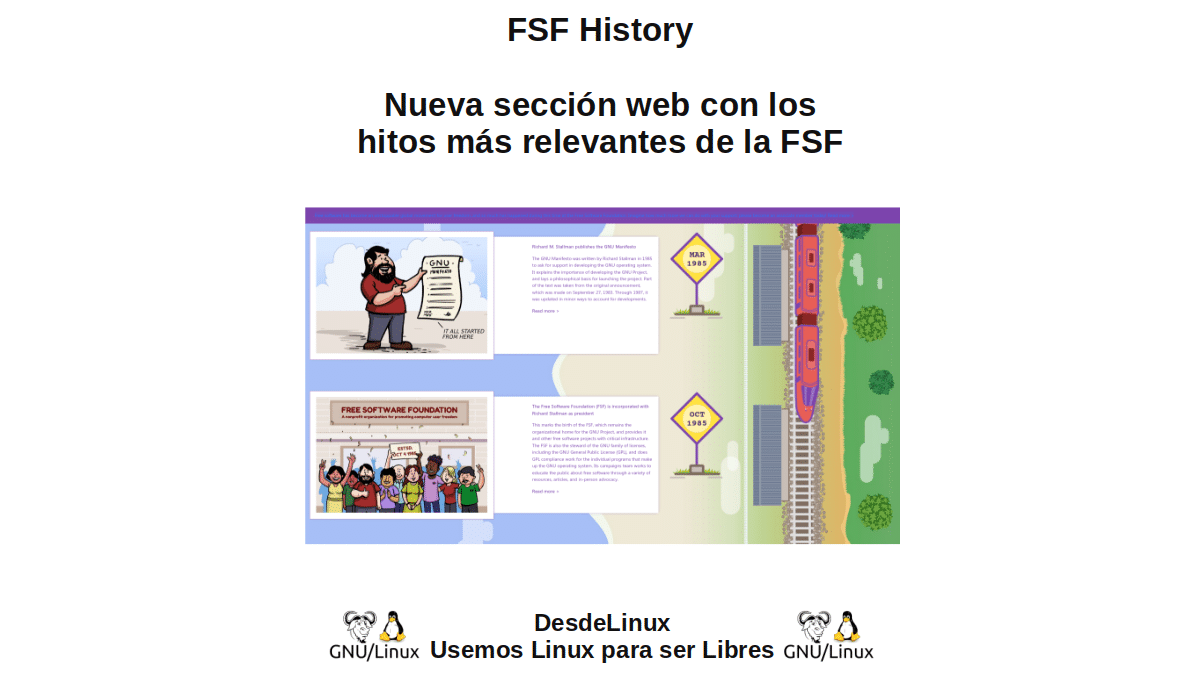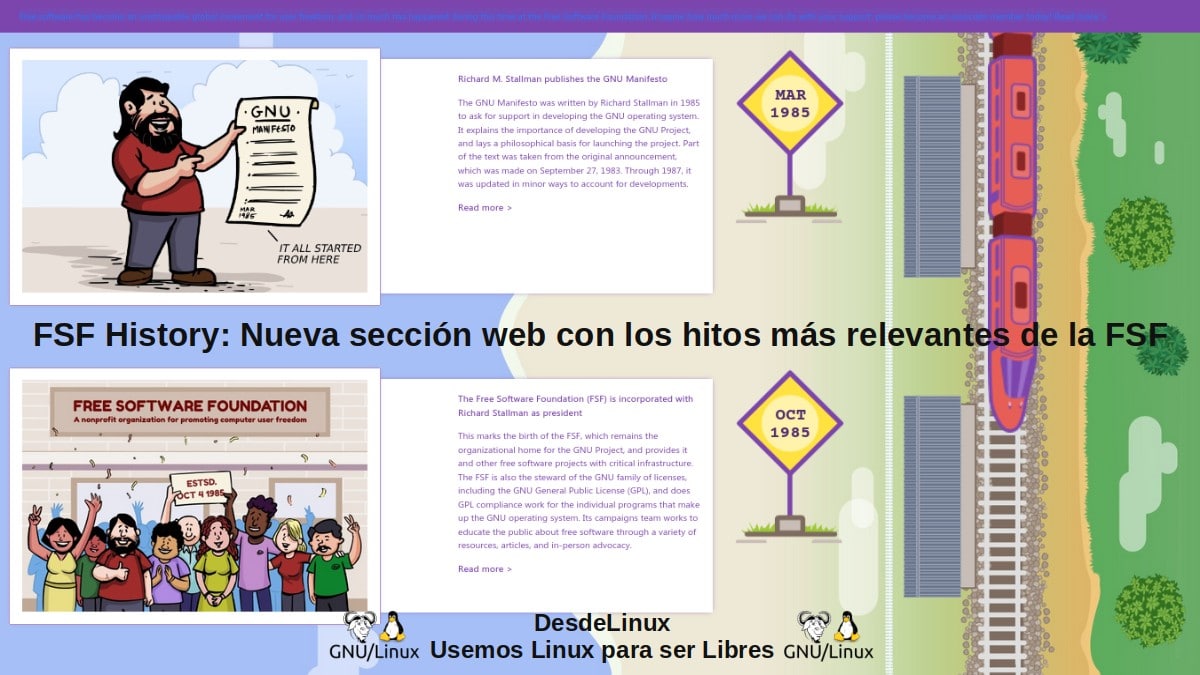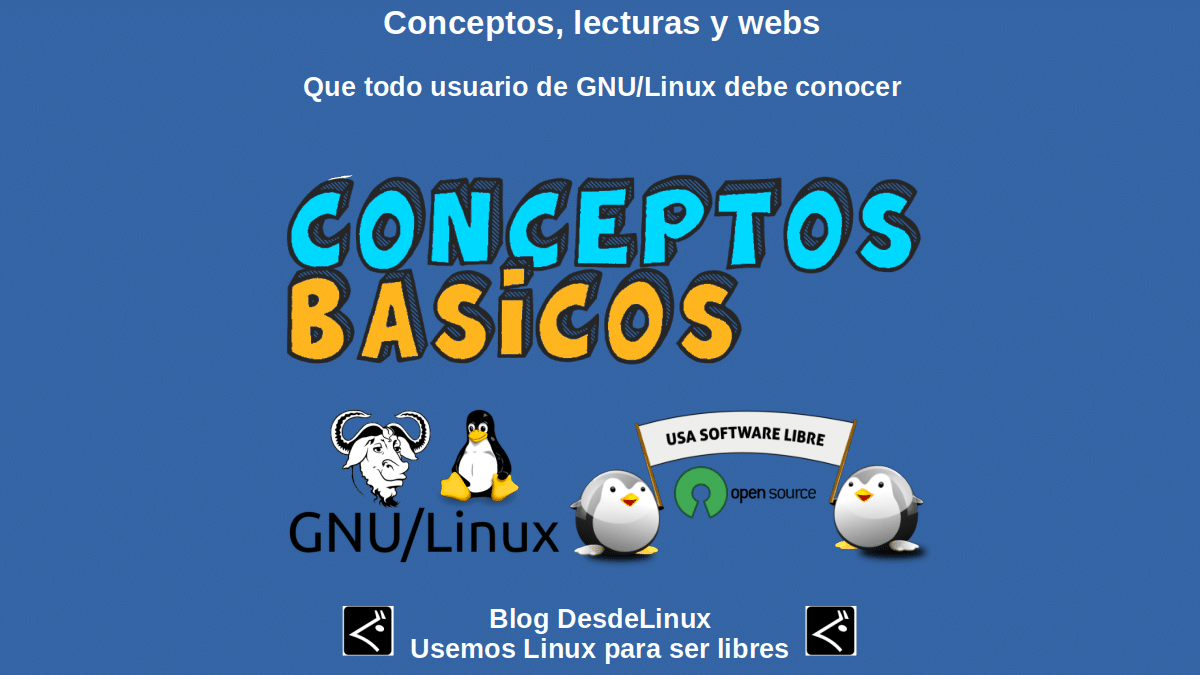
FSF History: New web section with the most relevant milestones of the FSF
Like everything collective of people that revolves around some theme, passion or object of worship, those who are passionate about it Free Software, Open Source and GNU / Linux we have certain relevant personalities and organizations that set the tone for our free and open IT domain.
In the case of personalities we have Richard Stallman y Linus Torvalds, among many others. And in the case of organizations we have the Free Software Foundation (FSF), among several more. And now, we can learn much more about the organization "FSF" thanks to a new website called "FSF History".

July 2021: The good, the bad and the interesting of Free Software
That is, now anyone can learn more about the Free Software Foundation (FSF) o Free Software Foundation (FSL) in Spanish, just by visiting on its official website a new informative section called "FSF History" or simply «History of the FSF» in Spanish.
It is worth noting that, a few days ago we offered a small informative preview about this news. Specifically about our customary «Summary of July 2021». In which we review the following:
20-07-2021 - Freedom advances: A review of the history of the FSF: Today we launched the FSF history timeline page that shows a clear overview of the organization's milestones, such as when GPLv3 was released, or when the first LibrePlanet conference took place. All of these pages have links that will take you deeper into the rabbit hole to increase your knowledge of the historical work of the FSF and the free software movement in general. FSF News in Post: July 2021: The Good, the Bad and the Interesting of Free Software


FSF History: An overview of the history of the FSF
Purpose of the FSF History
In bliss new web section call «FSF History» you can find interesting and useful data and information, which will allow you to know more in depth the history of such an esteemed organization, which is also close to celebrating its thirty-sixth birthday, riding a October 2021.
As, "FSF History" is specifically created to offer all who follow and consult the "FSF" a better and clearer overview of the organizational milestones, or in other words, clearly shows the FSF history timeline.
FSF organization milestones
In order not to make this publication so extensive, we will briefly mention and only the important milestones that occurred before the year 2000 mentioned there. In such a way, that in case you want to delve into all the historical milestones reviewed after the year 2000, visit and explore the website of the "FSF History".
Milestones reported before 2000
- March 1985 - Richard M. Stallman publishes the GNU Manifesto: The GNU Manifesto was written by Richard Stallman in 1985 to request support in the development of the GNU operating system. It explains the importance of developing the GNU Project, and establishes a philosophical basis for launching the project.
- October 1985 - The Free Software Foundation (FSF) is formed with Richard Stallman as presidentThis marks the birth of the FSF, which continues to be the organizational home of the GNU Project, and provides this and other free software projects with critical infrastructure.
- February 1986 - First publication of the definition of Free SoftwareAlthough it was officially published on the gnu.org web pages for the first time in 1996, a first definition of free software was published in the first Bulletin in 1986.
- February 1989 - Official publication of the GNU General Public License (GPL): The GNU GPL is the core of free software's continued strength and existence. The strength of the license, and the essence of software freedom, is in its decree that any derivative or combined work must be published under the same license, thus perpetuating your freedom. This allows users the freedom to perform, copy, modify and share the work freely.
- October 1999 - UNESCO and FSF launch the Free Software Directory: The Free Software Directory is a collaborative catalog of computer programs that are totally free (free understood as freedom). The Directory currently contains more than tens of thousands of software packages of many, many types.
More information
For those who wish to deepen or complement others basic concepts or other information on topics related to the field of Free Software, Open Source and GNU / Linux, we leave you immediately below, the following link to one of our previous related posts with excellent information about it:


Summary
In short, this new web section of the official site of the "FSF" call "FSF History" or simply «History of the FSF», in Spanish, is a valuable container of historical information that will be updated over time, and will be very useful especially to the new generations who begin to investigate and enter our free and open IT domain.
We hope that this publication will be very useful for the entire «Comunidad de Software Libre y Código Abierto» and of great contribution to the improvement, growth and diffusion of the ecosystem of applications available for «GNU/Linux». And do not stop sharing it with others, on your favorite websites, channels, groups or communities of social networks or messaging systems. Finally, visit our home page at «DesdeLinux» to explore more news, and join our official channel Telegram from DesdeLinux.